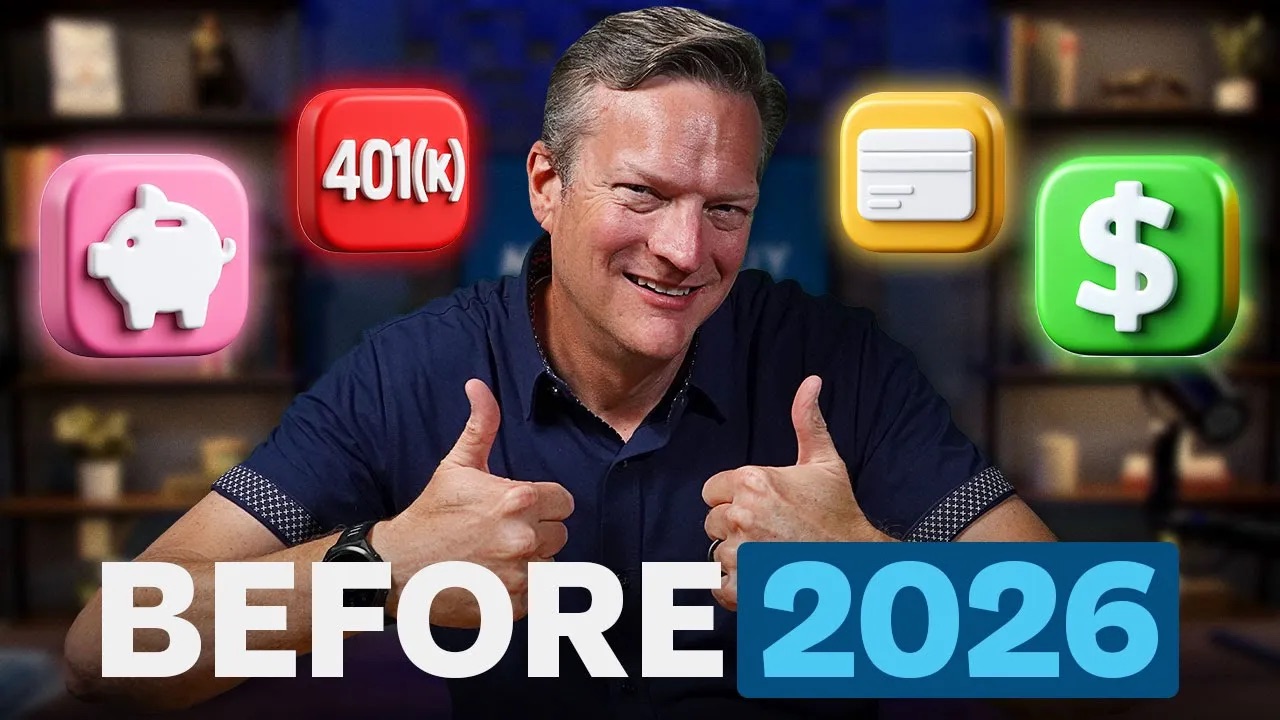Let's talk about something that you need to hear early, so your journey can keep going. Debt is like a chainsaw, and I'm talking about the shrillest, loudest version that scares the heebie-jeebies out of you at every haunted house that comes around during Halloween season. You need to be very, very careful about using any form of debt. Yeah, Brian, this is a Brian preston-ism I'm about to pull out. You always say, "If you're not scared, you're doing it wrong." If you're not approaching it with caution and apprehension, then you're not doing it correctly because debt can be devastating to your financial life. Now, that does not mean our opinion is that you should avoid debt at all costs and that debt is purely evil. But when used incorrectly, it is not a good thing when it comes to building wealth.
Yeah, I think that's the problem that people have missed. I mean, everybody in the room is using some form of debt because it's just a part of the financial system. But what I see is that in this consumer society, we become very flippant with how we use debt. We're not scared of it; we don't respect it, and we don't understand how powerful of a thing it is. It can pull you down into depths and turn compounding interests, which is actually your superpower to building wealth and success, upside down to work against you. That's the biggest thing we're trying to protect you from.
Debt is supposed to be a bridge, right? A lot of us, when we go to buy our first home, might not have enough dollars to buy the home outright, so we utilize debt to purchase that home and pay it off over time. But far too often, people think of debt as a bridge, but it actually becomes a bridge to trouble as opposed to a bridge to opportunity. You had mentioned compounding interest, Brian. Let's talk about the dark side of compounding interest and just how negative and scary it can be if you don't take it seriously.
Think about this. Let's say you are 22 years old right now and you're making the minimum monthly payment. We know the average credit card balance in this country right now is $5,910. That's not the average credit card usage; that's the average amount carried over month over month for credit card users. Well, if you look at the average interest rate that people pay on credit cards, it's 20.77%. Could you imagine if you had an investment that was yielding you 20.77% a year? You'd never get rid of it. Yeah, that would be on to the moon. I mean, that would be such an exciting thing. But that is what people who are using credit cards inappropriately because remember, credit card use is okay; credit card debt, no way. Because people, there's no way you'll ever be ahead if you're paying close to 21% annual interest. That's just a disaster. It's just not gonna work for you.
This is why it's so bad. Most credit cards are written with the minimum required payment usually somewhere between twenty-five dollars or three percent of the outstanding balance. So, if you think about someone who went to purchase something that cost $5,910, and they just start making the minimum payment until they get it paid off, they will actually, over the life of that loan, pay interest of $7,343. That means that nearly $6,000 thing that they purchased cost them over $13,000, and it took them 17 years to pay it off. Now, I don't know what this $6,000 thing they bought was, but odds are they're not even using it 17 years in the future. It's crazy if you allow debt to work in that way. But you guys are financial mutants; you think about this the other way.
Let's talk about the real cost of it because $7,300 in interest is a cost, but it's not the real cost. What if, instead, that minimum monthly payment was saved and invested for retirement? Well, what's really interesting is that by the time that credit card was paid off, by the time you hit that 17-year mark, you would have $45,000 saved up. We're assuming you can earn 10% on that. So instead of paying off something you purchased 17 years ago, you actually have forty-five thousand dollars working for you.
Yeah, here's the thing I think is interesting. Remember, this is approximately thirteen thousand dollars if you take what you spend, around six thousand plus strapped on with what we had calculated the interest carry costs if you're just making the minimum payments. And we cut the interest in half from what the credit card companies are saying. So that's about where the S&P 500 has been. But here's what's interesting. You already see, all right, if we were actually working with compounding interest instead of letting it work against us because this is a disaster if it's working against us. That's only part of the story because that money, if you just let it work until retirement, it turns into something else. What is the value of time actually due to this? By 65, if you just let that $45,000 that it built up, if you just let it continue to grow all the way out until age 65, it could be worth nearly $600,000. As a reminder, the minimum payments you were paying on the credit card equaled thirteen thousand dollars. So, for a 22-year-old that starts saving, if you save thirteen thousand dollars, it has the potential, by 65, to turn into six hundred thousand dollars. I have to ask the question, what's more valuable to me: that six thousand dollar shiny thing that I want to buy and pay for with debt, or six hundred thousand dollars of future dollars that I can use?













